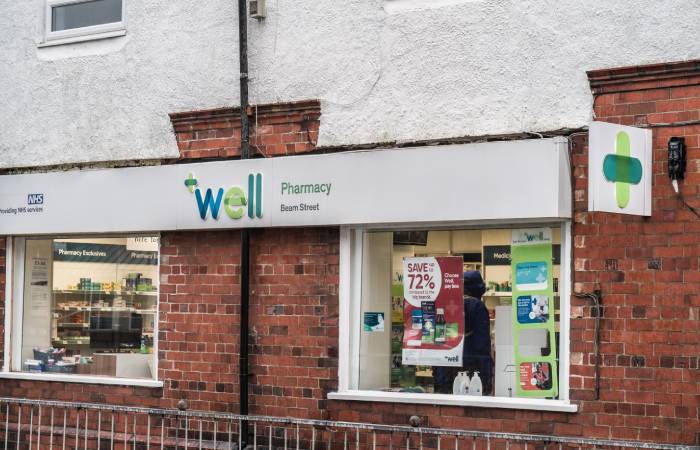Latest

Well posts a £32m loss for 2022-23 as scripts dip slightly
In Latest
Bookmark
Record learning outcomes

Well Pharmacy made a loss of £32m in the 12 months to June 30 2023 after a “challenging” year, its directors have said.
The pharmacy chain’s latest accounts, which were published on the Companies House website this week under the name Bestway National Chemists, show that Well made a pre-tax loss of £32.2m in 2022-23 compared to a pre-tax profit of £4.2m the previous year, and an operating loss of £21.3m compared to an operating profit of £8.2m in 2021-22. Net assets were down to £4.4m from £33.6m the year before.
Well’s losses came in spite of revenue climbing by 3.4 per cent year-on-year to £716.6m and the company’s estate expanding from 742 to 782 branches, Well directors said as they described the 2023 financial year as “challenging”.
Prescription volumes fell by 2.5 per cent year-on-year, from 72.1 million to 70.2 million – a drop that bucked trends observed elsewhere in the sector as the gradual disappearance of LloydsPharmacy from the UK high street led to higher activity levels for remaining providers.
The company bought a number of branches previously owned by LloydsPharmacy in 2023, including John Bell & Croyden which it purchased for £6.1m in July last year and 11 branches bought in August for a combined price of £9.9m.
Inflationary pressures
The accounts describe a number of factors that placed “significant” pressure on the business, including “changes within the flat funding contract” as some ‘transitional’ funds the company had expected to receive were withdrawn by Government and a clawback was made of funding over-delivery for the 12-month period up to March 2022.
“Inflationary pressures on global supply chains increased the price of generic medication,” they added, commenting that the “natural lag” in generic medicines funding mechanisms forces pharmacy owners “to absorb the increases until the tariff adjusts”.
Payroll costs also rose during 2022-23, the report revealed, with “wage pressure” coming via both National Living Wage increases and the cost of recruiting employee and locum pharmacists.
A separate report for Bestway Panacea Holdings, which also includes figures for Well’s wholesale distribution division, shows the company slashed staff numbers for retail pharmacies from 5,157 to 4,638 and reduced its head office staff from 317 to 253, but almost doubled its wholesale distribution staff headcount from 463 to 839.
The overall wage bill rose by 10.8 per cent to £178m, with payments to directors rising by a third to £1.6m and the highest paid director receiving a 50 per cent increase taking them to £1.1m.
Rising energy costs are also mentioned in the report, with the directors describing this as a “key area of focus” as the company targets energy usage across its pharmacy estate and delivery fleet, in part through “forward purchasing of power” to mitigate future price increases.
‘Strategic investment’
Despite these cost challenges, the company said it plans to keep investing in pharmacies – including a “significant” investment in staff training – to show its “commitment to pharmacy and offering accessible healthcare services to local communities”.
In addition to the acquisitions from LloydsPharmacy last year, which came after the end of the 2022-23 accounting period, the financial year saw Well acquire Lexon UK – a “significant and strategic investment” that saw it buy up the wholesaler, its generics manufacturing site and 44 community pharmacies after agreeing to sell seven Well branches to assuage competition concerns.
It also bought three smaller pharmacy businesses in 2022-23, giving it an additional four branches, and the “trade and assets of a further two pharmacies,” with the directors commenting: “The growth of the business is therefore predominantly organic and a smaller element of inorganic growth… our strategic intent is to improve the quality and scale of the network where reasonable value exists.”
“We remain optimistic we will return the company to profit in fiscal year 2024,” the directors said, adding that in the event of future cash pressures “sufficient funding would be provided by the wider group of which it is part”.
Parent company Bestway, which bought Well from the Co-Operative Group in 2014, recently published accounts for its food and tobacco wholesale business, which saw profits rise by 20 per cent to £51.8m in the year to June 30.
